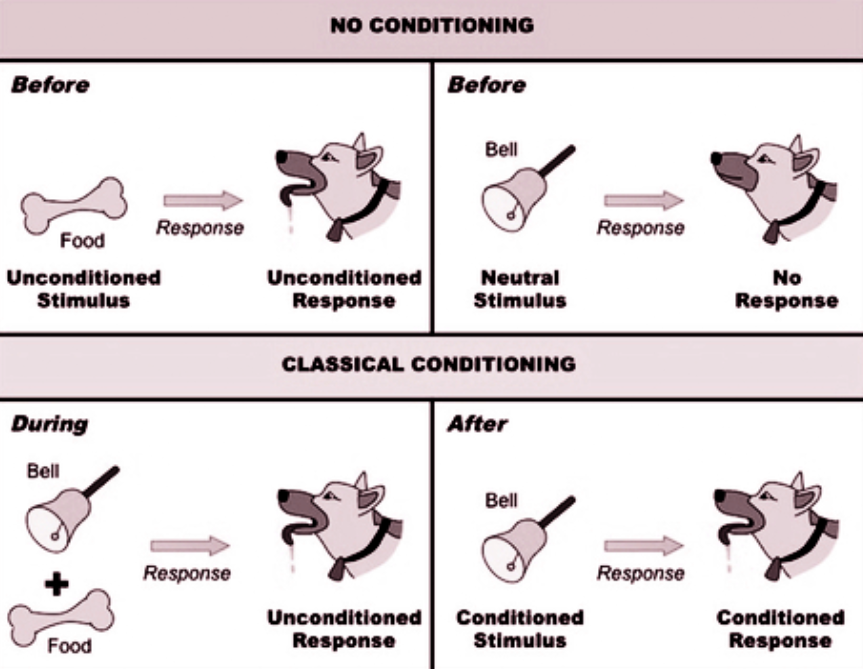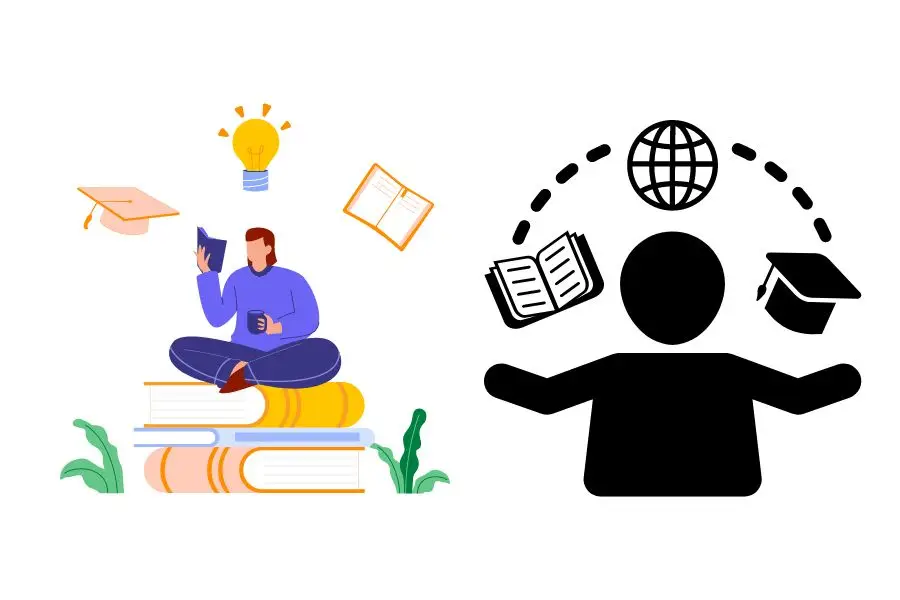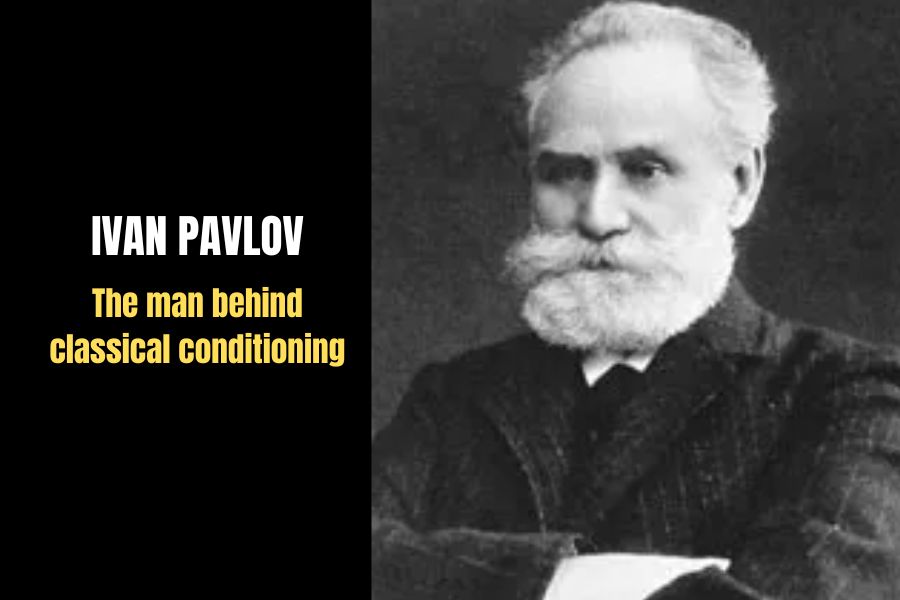Ivan Pavlov is one of the most influential person in the history of psychology, and his contributions to psychology are still relevant today. His innovative research on classical conditioning and human behavior significantly altered our perspective on how humans think and react to their environment. Ivan Pavlov’s theories have been essential for propelling psychological investigation. At the same time, his authoritative work continues to be explored by modern-day psychologists.
In this blog post, we shall investigate Ivan Pavlov’s life story and works, reveal his consequential principles, including classical conditioning, and focus on his enduring effect on understanding human conduct.
Table of Contents
Ivan Pavlov’s Biography

Ivan Pavlov is widely acknowledged as one of the most eminent psychologists in history. Ivan Pavlov was born into a Russian family in 1849. He originated from a small village in Russia, and his family had an extremely humble lifestyle. Throughout his life, he was driven by a consuming interest in obtaining knowledge concerning the world surrounding him; this curiosity eventually led to his becoming one of science’s most famous personalities.
Pavlov’s contribution to psychology began with investigations on digestion done on dogs and cats at St Petersburg University back in 1883. Through his experiments, Pavlov discovered that animals could be conditioned to salivate or respond when presented with certain stimuli, such as food and sound, even before it was offered to them. This finding became famously known as classical conditioning. This theory has had an enduring influence on our comprehension of human behavior until today.
Beyond the discovery of classical conditioning, Pavlov also developed a vast array of theories relating to animal behavior and psychology that have been immensely influential in deepening our current understanding of how organisms learn from their environment throughout time.
Ivan Pavlov’s work has revolutionized psychology and created a new field that studies the relationship between stimuli (external environment) and responses (internal environment). His findings have been instrumental in advancing research into perception formation, decision-making processes, and learning mechanisms, all of which remain intensively explored due to their significance for modern society and medicine.
Moreover, his impact is not limited to science but reaches far beyond it – many facets of popular culture have been molded by principles derived from Pavlovian theory, such as advertising strategies utilized by businesses worldwide!
In addition, he conducted clinical inquiries involving humans dealing with illnesses such as schizophrenia (formerly referred to as dementia praecox), hysteria, hypochondriasis, depression, and various anxiety disorders that further developed our understanding of mental illness today.
Classical Conditioning Theory

Ivan Pavlov is renowned for his seminal work on classical conditioning. Classical conditioning denotes the learning process of an organism associating one stimulus with another; Pavlov first expounded it in the early 1900s, and it rapidly became among the most widely acknowledged theories of learning within psychology. Fundamentally speaking, classical conditioning involves uniting a natural stimulus (for example, food) with an artificial stimulant (such as a bell).
Over time, an association between two stimuli develops, which leads to a spontaneous response on exposure solely to the synthetic stimulus. To illustrate this concept, if one continually pairs food with a bell ringing sound, their dog will eventually salivate at only hearing the ringing, even without any sustenance around them.
Applications of Classical Conditioning Theory

Classical conditioning theory has been utilized in various realms, such as in marketing and advertising strategies, teaching and educational programs, medicinal treatments, plus psychological behavior therapies for mental health issues like phobias or anxiety disorders.
This theory has also been applied to elucidate how animals learn behaviors through reinforcement or punishment originating from their environment or handlers – including the capability of dogs to be trained utilizing reward-based strategies such as clicker training and affirmative reinforcement methods like praise or treats when they act suitably.
Ivan Pavlov developed a variety of new techniques for examining animal behavior, such as the implementation of surgically implanted electrodes into their brains to measure electrical activity during experiments; he identified neural pathways related to reflexes; he studied emotionality in animals and formulated ideas about how humans learn language based on his observations.
His classical conditioning research still influences knowledge regarding learning procedures today, motivating novel ways of thinking about psychological phenomena like motivation, sentimentality, remembrance formation & recall – all providing us with a deeper understanding of how we engage with our environment.
The Impact of Ivan Pavlov’s Work on Human Behavior
Ivan Pavlov (1849–1936) significantly contributed to psychology. Through his research activity, Pavlov uncovered how environmental stimuli can shape an individual’s thought processes and conduct. It consequently enabled further discoveries regarding how learning occurs and how we may employ this knowledge to modify our demeanors and those around us.
Ivan Pavlov’s experiments with dogs were some of his most renowned studies. Upon observing that the canines began salivating before actually consuming food when he presented it, he hypothesized these animals had been conditioned by past experiences involving nourishment.
To confirm this hypothesis, Pavlov set out to pair an auditory stimulus (a bell) with presenting their food – after repeating this several times, he discovered the dogs would start salivating upon hearing just the bell without any visible presence of feed.
For the first time, Pavlov’s research demonstrated that environmental cues could be employed as conditioned stimuli to affect behavior in mammals and people alike. The implications of this body of work have been immense over the years, impacting fields such as education, marketing, advertising, medicine, and, more recently, artificial intelligence studies. Thanks to his experiments, we now comprehend how classical conditioning functions; if someone is exposed regularly to certain stimulations, their reactions will eventually become associated with this stimulus, prompting them to adapt their behaviors appropriately.
If someone is continually exposed to negative messages regarding themselves, eventually they will start accepting those statements and taking action based on them; conversely, if somebody is regularly presented with positive communications, then it may result in more beneficial self-beliefs about themself that could lead to healthier behavior as a whole.
The pioneering efforts of Pavlov provided an impetus for further investigation into the field of cognitive psychology, which is dedicated to understanding how people think and learn.
Additionally, his legacy lives on in modern-day behavioral sciences, such as Operant Conditioning, created by B.F. Skinner later in history. This branch focuses on strategies known as operant reinforcement, which can be employed favorably or negatively depending on the kind of reward or punishment that comes after a person or group’s subsequent actions. All these concepts owe credit to their originator and trailblazer – Pavlov – whose contributions have had a lasting influence on psychology even after his lifetime has passed.
Ivan Pavlov’s Research Methods

Pavlov continued to pursue further education at the University of St. Petersburg, specializing in physiology while concurrently being engrossed by animals’ digestive systems. It was then that he initially embarked upon the exploration of reflexes. This undertaking led him to conduct his well-known experiment – ‘Pavlov’s Dogs.’
In this experiment, Pavlov observed that dogs had started to salivate when they heard a sound or viewed particular objects even before the food was presented to them; this culminated in an indication that a response could be conditioned via repeated associations between stimuli and an unconditioned reaction (in the example of salivating). This theory is now referred to as “classical conditioning.” It is regarded as one of the most basic principles within learning theory since it explains how our environment and experiences can mold behavior.
Furthermore, Pavlov pursued numerous other experiments, allowing him to refine his theories on classical conditioning further. One experiment which serves as an example demonstrated that stimuli could become associated with a given reward or punishment. In this case, the study involved ringing a bell before presenting food; it was discovered over time that even when absent of any nourishment, the dogs began salivating upon hearing only the sound of the bell. It indicates how these principles still apply in modern psychology regarding comprehending human behavior and why people react differently under varied conditions.
Ivan Pavlov’s work has tremendously affected modern psychology, demonstrating to researchers how associations between stimuli can alter reactions over time. His theories have been widely implemented within clinical settings (when handling phobias, for example) and educational contexts (regarding teaching methods for children).
Moreover, his studies opened up paths toward further research into more intricate forms of learning, such as operant conditioning (which requires reinforcement or punishment) and observational learning (thus explaining why humans copy behaviors they witness from others). Like this, all these elements combined demonstrate how influential Ivan Pavlov has been in grasping human behavior!
Contrasting Pavlov’s theories with those of John B. Watson, Sigmund Freud, and Jean Piaget
For his outstanding contributions to psychology, Ivan Pavlov was honoured with the Nobel Prize in Physiology in 1904. To this day, his experiments regarding classical conditioning are widely employed within science and psychology. While Pavlov’s theories have indelibly imprinted on our understanding of human behavior, they are not the only ones contributing to it. Pavlov’s work appears strongly influenced by John B. Watson, an American psychologist who is justifiably referred to as one of the pioneers behind behaviorism.
Rather than depending on introspection or individual experience, as had been the practice of preceding theorists, John B. Watson advocated that all conduct could be studied objectively and scientifically through meticulous observation and experimentation. Since its inception in 1913, this notion has maintained tremendous sway across psychology and numerous other fields. In striking deviation from this behaviorist approach championed by Watson, Sigmund Freud proffered a psychoanalytic model of the mind that concentrated upon unconscious psychological operations instead of discernible behavior patterns.
Freud proposed that specific components of personality, such as repression, may be derived from formative experiences in childhood or other subconscious motivations hidden away from conscious awareness. His theories remain a significant component of present-day psychotherapy practice despite criticism by some who have questioned their scientific soundness or usefulness for clinical implementation.
Additionally, another influential psychological theory is attributed to Jean Piaget. It revolves around cognitive development stages from infancy to adulthood, amongst others. This notion centers on acquiring knowledge regarding the environment and individual’s experience over time.
Ivan Pavlov’s ground-breaking work on Classical Conditioning has undoubtedly contributed to psychology and should not be overlooked. However, it is equally vital to note the significant theories of John B. Watson, Sigmund Freud, and Jean Piaget, which all provide elucidations into comprehending human behavior based on external examinations as well as inner motivations that are still impacting our understanding of psychological issues these many years after they were first raised.
Specifically, regarding Jean Piaget’s ideas, he believed them to be universal but that their advancement may vary between children depending upon those individuals’ experiences along with educational opportunities available throughout any particular period during their development.
Influence on Learning and Behavior

Pavlov’s work had significant implications regarding recognizing human behavior, chiefly concerning learning procedures. By analyzing how animals learned through connecting stimuli and reactions, he demonstrated that humans also can learn similarly. His research contributed insight into how people develop habits and behaviors over time because of persistent experiences.
Suppose someone had a pleasant experience partaking in ice cream once before. In that case, they are likely to partake again due to their propensity to associate the pleasure derived from the initial time with eating it afresh in the future.
The theories of Ivan Pavlov have been applied across the field of psychology. Cognitive psychologists cite his research when discussing memory formation, habituation, and reinforcement learning.
Operant conditioning techniques based on reward-based behavior modification are still used today in clinical settings worldwide for purposes including helping people make positive behavioral changes like overcoming addictions or phobias or managing anxiety levels.
Pavlov was renowned for his pioneering contributions to psychology and widely acknowledged for being a committed advocate of ethical standards throughout all facets of science. He raised public awareness about animal rights issues in this area, prompting other researchers (and even now) to consider ethical concerns before conducting experiments involving animals and respect their subjects’ safety during any experimentation process with due consideration given to responsible practices whenever applicable.
Conclusion
In conclusion, the mark of Ivan Pavlov’s pioneering efforts within psychology is still being felt in modern times. His work concerning classical conditioning has revolutionized our comprehension of human behavior and laid principles for ahead investigations into psychological matters. He was a leader in his discipline, and his perceived bliss will live on through subsequent eras of psychologists who persist in building upon the discoveries he made.













